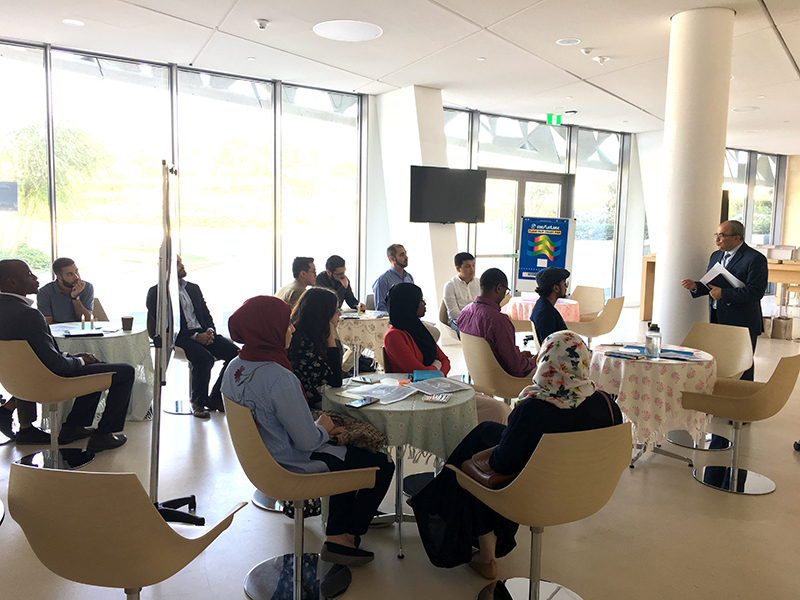Drawing upon the collective imagination of its student body, the College of Islamic Studies (CIS) at Hamad Bin Khalifa University (HBKU), a member of Qatar Foundation, organized the University’s first makerspace initiative, bringing together students to share ideas, experiment learning and develop a framework for transformative change.

The session, titled Islam in a Global World: A Makerspace, concluded with a joint declaration issued to humanity.
The four-point statement sourced its inspiration from the tenets of Islam and discussed the role of communities across the globe in the face of pressing contemporary challenges. As a concluding stage of the makerspace initiative, participating students will avail the opportunity to present His Highness the Amir Sheikh Tamim bin Hamad Al-Thani with their hopes for global communities to collaboratively work towards the resolution of world crises.
Describing the empowerment of youth as one of the most critical factors in addressing contemporary challenges that affect the Islamic world, Dr. Emad El-Din Shahin, dean of CIS, said: “At the College of Islamic Studies, it is a key part of our institutional efforts to stir a civilizational renaissance. This declaration seeks to give students a platform to voice their collective concerns and develop their own unique and creative solutions. We essentially share the responsibility of problem-solving with a generation that is the biggest shareholder in the building of a peaceful future.”
Organized by CIS’ Assistant Professor Dr. Mohamed Evren Tok, the makerspace initiative is a novel approach and provides a maiden opportunity for students to gather and collaborate to produce creative results, with each participant harnessing their own academic background, life experiences and internal motivation. Further facilitating students to synergize productively during the course of the day, CIS’s communal creative space, where the initiative was conducted, came equipped with stationery, art tools and other constructive resources.
In their declaration to humanity, the students proclaimed that a shared obligation exists to protect and integrate refugees, while affording them basic human rights. Furthermore, they stated that communities must enshrine principles of humanitarianism and work together to holistically address the material and non-material needs of the vulnerable. Building on the theme of collaboration, the authors called for inter-communal dialogue to seek common ground where conflict was rife. Finally, denouncing terrorism in all its forms, the students stressed on the need for a multifaceted approach to combat this global phenomenon, based on the promotion of education and justice.
Makerspace is an initiative under Innovation Space, a cornerstone project of HBKU that is critical to the objectives outlined in the University’s 10-year strategic plan. The project was launched with the aim of developing an innovative culture under which novel ideas from the HBKU community may thrive. A series of Innovation Space initiatives are presently underway and are scheduled to be carried out within the University and across the colleges and research institutes, with the aim of addressing topics in humanities, social sciences, engineering, ICT, and health and life sciences.





